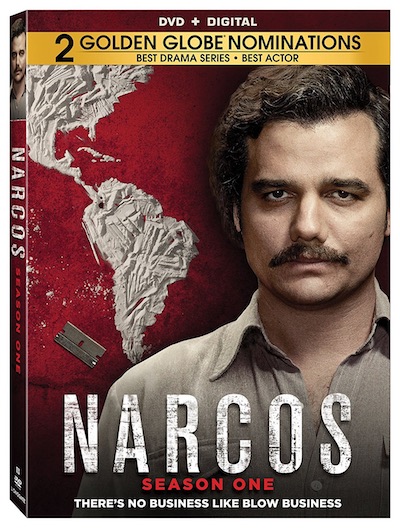 When it comes to intellectual property in Hollywood, you only have to take a look at the long list of credits at the end of a TV show or movie to get a hint of the army of people involved in making it. It is a complex, collaborative process that gives rise to many different layers of rights that relate to different elements of a production, such as the script, the music, the direction and the performances.
When it comes to intellectual property in Hollywood, you only have to take a look at the long list of credits at the end of a TV show or movie to get a hint of the army of people involved in making it. It is a complex, collaborative process that gives rise to many different layers of rights that relate to different elements of a production, such as the script, the music, the direction and the performances.
All of the IP rights connected to each of these needs to be licensed, transferred, and documented to allow the producer to claim ownership of the TV show, raise the necessary money to make the film, and license distribution rights so it reaches the widest possible audience. Producers are responsible for getting a film project off the ground. Throughout the film-making process, producers negotiate multiple agreements that define how the IP rights arising from the input of the various creative contributors will be used and remunerated. These agreements are underpinned by copyright law and contract law and are known as chain of title documentation.
Narcos, the popular Netflix drama about one of the world’s most notorious drug lords Pablo Escobar, is currently at the center of a trademark dispute that has been brought back into headlines after almost a year. Roberto De Jesus Escobar Gaviria, brother of legendary drug lord Pablo, has requested $1 billion from Netflix for what he believes are major IP violations.
Escobar cites “mistakes, lies and inaccuracies from the real story” in the first season as the reason for his request in a letter obtained and published by TMZ. “It is depicting me, my life, my family and my brother,” Escobar stated in the letter. “I think nobody else in the world is alive to determine the validity of the materials, but me.”
Escobar Inc., a holding company founded by Gaviria, argued that Netflix has reaped substantial financial benefits by using the company’s trademarks, including their names and Pablo’s story, without permission. After Gaviria registered the trademarks, Netflix sent him a cease-and-desist letter saying the rights claims were fraudulent. According to the United States Patent and Trademark Office database, some of Escobar Inc.’s trademark requests have already been granted.
Roberto Escobar served as his brother Pablo’s accountant in the Medellin cartel and was also head of his hitmen, said Escobar Inc. He was imprisoned in 1993, the same year his brother was killed, and was rendered half-deaf and half-blind following a letter-bomb attack. He has since written a book about Pablo’s drug empire, The Accountant’s Story: Inside the Violent World of the Medellín Cartel, released in 2009.
“You have to eliminate all threats,” Gaviria told The Hollywood Reporter. “If you have the intellect, you don’t need to use weapons. If not, you have to. In this case, Netflix should provide hitmen to their people as security.”
Sideman & Bancroft’s Ryan Fox recently sat down with IPWatchdog to discuss the significance of this case and its potential implications moving forward.
Escobar Inc. is accusing Netflix and the Narcos production entity of infringing on its trademark rights over NARCOS and CARTEL WARS. Escobar Inc. owns thirteen pending applications at the USPTO, which do not grant it any rights. Escobar Inc.’s claim is covered by common law trademark rights earned through prior use of the marks.
“Escobar Inc. is effectively saying consumers have come to associate NARCOS and CARTEL WARS with Escobar Inc., and Netflix has unfairly profited off that association through its television show. As an initial matter, it is not clear that Escobar Inc. earned any rights that Netflix or the Narcos production entity could infringe,” Fox explained. “As the Narcos production entity’s counsel noted, there are several questionable issues raised by Escobar Inc.’s trademark filings.”
For example, Escobar Inc.’s NARCOS application in Class 9 claims the mark has been in use on goods including “downloadable ring tones featuring music and voice messages” and “carrying cases specially adapted for portable music players, mobile telephones, personal digital assistants, notebook computers and tablet computers” since January 31, 1986. But, according to Fox, it seems unlikely that Escobar Inc. has been producing NARCOS iPad covers in 1986.
“Assuming Escobar Inc. did establish valid common law trademark rights, it could seek damages in the form of Netflix’s profits,” he said. “Escobar Inc. would have to account for the percentage of Netflix’s profits that Netflix earned as a result of the infringement.”
Putting aside the questionable validity of Escobar Inc.’s claims, this case is a prime example of the importance of a thorough trademark clearance search that includes common law uses. If Escobar Inc. had established prior rights and Netflix failed to properly clear the show’s title, Netflix’s use of Narcos will cost it a lot more than a comprehensive search would’ve in 2015.
In addition to preliminary clearance searches, content producers may consider registering for federal trademark protection to cover their television titles. Unlike individual episode titles, the title of a series can obtain trademark rights, particularly when there are ancillary streams of revenue, such as apparel or, in this case, video games.

![[IPWatchdog Logo]](https://ipwatchdog.com/wp-content/themes/IPWatchdog%20-%202023/assets/images/temp/logo-small@2x.png)

![[Advertisement]](https://ipwatchdog.com/wp-content/uploads/2024/04/UnitedLex-May-2-2024-sidebar-700x500-1.jpg)
![[Advertisement]](https://ipwatchdog.com/wp-content/uploads/2024/04/Artificial-Intelligence-2024-REPLAY-sidebar-700x500-corrected.jpg)
![[Advertisement]](https://ipwatchdog.com/wp-content/uploads/2024/04/Patent-Litigation-Masters-2024-sidebar-700x500-1.jpg)

![[Advertisement]](https://ipwatchdog.com/wp-content/uploads/2021/12/WEBINAR-336-x-280-px.png)
![[Advertisement]](https://ipwatchdog.com/wp-content/uploads/2021/12/2021-Patent-Practice-on-Demand-recorded-Feb-2021-336-x-280.jpg)
![[Advertisement]](https://ipwatchdog.com/wp-content/uploads/2021/12/Ad-4-The-Invent-Patent-System™.png)






Join the Discussion
4 comments so far.
Benny
October 24, 2017 05:28 amThe subtitle of “Narcos” in the accompanying picture seems a bit risque. Perhaps that tagline could be trademarked, maybe by Ms. M. Lewinsky.
Paul Levy
October 23, 2017 12:39 pmI should have said “cite” not “site”
Paul Levy
October 23, 2017 12:18 pmIt’s not at all clear to me that this is a genuine IP demand. The demand letter that you site (very disappointed that you did not link to it http://tmz.vo.llnwd.net/o28/newsdesk/tmz_documents/0705_Pablo%20Escobar%20Letter.pdf) did not use the word “trademark”; it sounds much more like a cross between a right of publicity claim and a defamation demand letter. Netflix counter-letter IS based on trademark law http://www.hollywoodreporter.com/thr-esq/netflix-escobar-family-bitter-trademark-dispute-narcos-1041614.
Andrei Mincov | Trademark Factory®
October 23, 2017 11:53 amThis is an absolutely fascinating story on so many levels. Without retelling what the dispute is about, it demonstrates the importance of having valid specimens of use when you claim past use of the mark. Claiming use of the mark in connection with “operating a website” and “game services provided online from a computer network” all the way back in 1986 is a lot more serious than it seems. It may sound funny, but in actuality, it means that the the trademark applicant knowingly provided false information, which may lead to invalidation of the application. Unfortunately, trademark owners are sometimes tempted to fabricate evidence of first use. And while these untruths may go unnoticed by the Trademarks Office, the danger is that any attempt to actually enforce the trademark may lead to its invalidation by the defendant.
Andrei Mincov
Founder and CEO of Trademark Factory® / https://trademarkfactory.com, the only firm in the world that offers trademarking services with a predictable, guaranteed result, for a predictable, guaranteed budget. We can help you register your trademarks with a free comprehensive trademark search, for a single all-inclusive flat fee, with a 100% money-back guarantee.